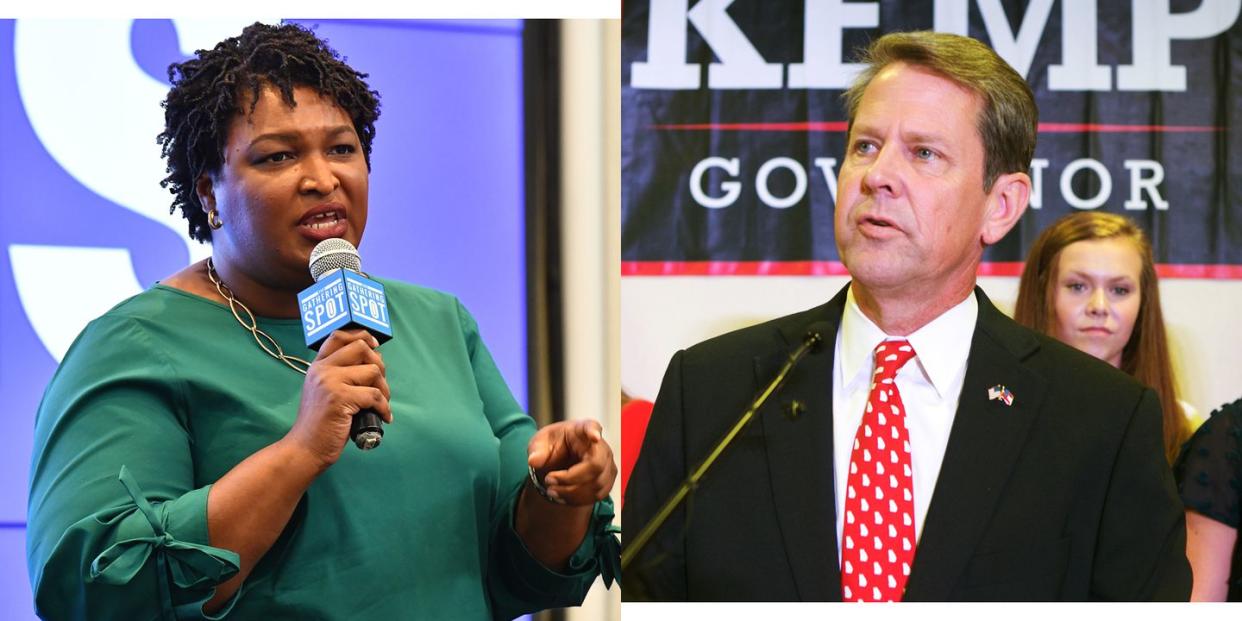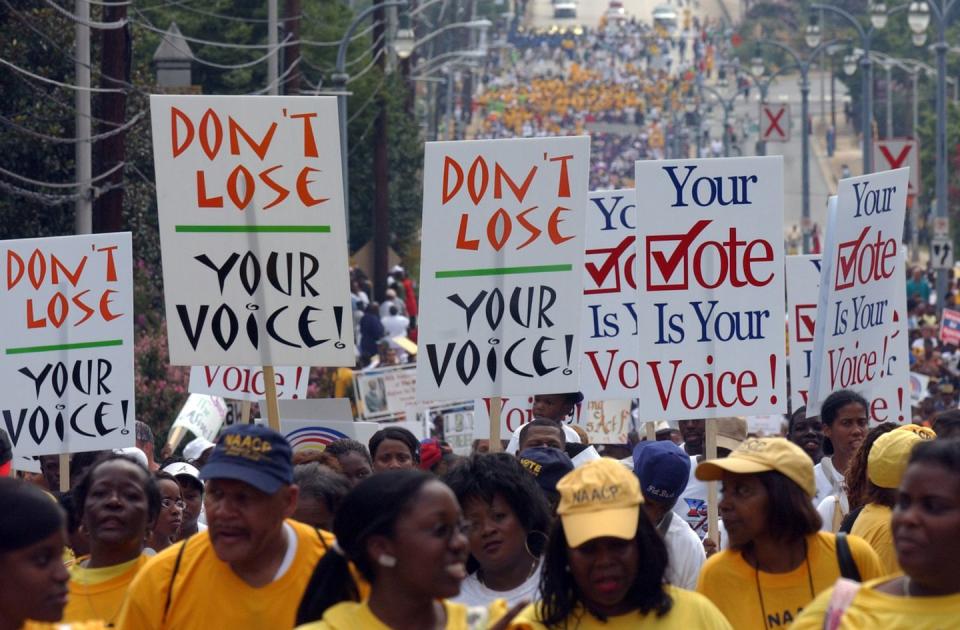The Georgia Governor's Race Is Ground Zero in the Battle for American Democracy

The assault on the franchise is one of the loudest tin drums that we beat on here at the shebeen, and the clearest case study in this election cycle is what's happening in the race to be the next governor of Georgia. Stacey Abrams, the Democratic candidate, and someone who would be the first African-American governor of Georgia and the first female African-American governor of any state, is the daughter of civil rights activists in Mississippi, and she made her name in politics battling to maintain the advances for which her parents had fought.
In 2013, when she was the Democratic leader of the Georgia House, and when the national Republican efforts to suppress the vote were really hitting high tide, Abrams launched something called the New Georgia Project, an ambitious effort to expand the voter rolls in the state with a concentration on registering new minority and young voters. In this effort, Abrams was fought by the Republican Secretary of State, who was a guy named Brian Kemp. He happens to be Abrams's opponent in the current election. From The Washington Post:
"I was kind of shocked,” said Appling-Nunez, who moved from one Atlanta suburb to another in May and believed she had successfully changed her address on the voter rolls. “I’ve always voted. I try to not miss any elections, including local ones,” Appling-Nunez said. She tried re-registering, but with about one month left before a November election that will decide a governor’s race and some competitive U.S. House races, Appling-Nunez’s application is one of over 53,000 sitting on hold with Georgia Secretary of State Brian Kemp’s office. And unlike Appling-Nunez, many people on that list - which is predominantly black, according to an analysis by The Associated Press - may not even know their voter registration has been held up.
We never should forget that the way we run elections here in the World's Oldest Republic is only a few steps above finger-painting.

Even if you ignore the fact of how easy elections are to hack and finagle, or the fact that one of our two political parties has made a crusade of finagling and squashing the franchise, or the fact that there doesn't seem to be a lot of national will to do anything about either of these problems, the electoral process in this country at the local level is even more of a dog's breakfast. The most egregious attempts to submarine voting rights happen in cities, and towns, and counties, and states like Georgia. These are also the places where the consequences of disenfranchising citizens are most obvious.
Under the policy, information on voter applications must precisely match information on file with the Georgia Department of Driver Services or the Social Security Administration. Election officials can place non-matching applications on hold. An application could be held because of an entry error or a dropped hyphen in a last name, for example. Appling-Nunez says she never saw any notice from Kemp’s office indicating a problem with her application. An analysis of the records obtained by The Associated Press reveals racial disparity in the process. Georgia’s population is approximately 32 percent black, according to the U.S. Census, but the list of voter registrations on hold with Kemp’s office is nearly 70 percent black. Kemp’s office blamed that disparity on the New Georgia Project, a voter registration group founded by Abrams in 2013.
And round and round we go. At the very least, in the race for governor or Georgia, the issue is right there on the center of the table. It's central to everything we boast of being as a country, so it should be right there in the middle of the table. It is, in fact, the whole table itself. Without it, we're all eating off the same floor.
Respond to this post on the Esquire Politics Facebook page here.
('You Might Also Like',)

